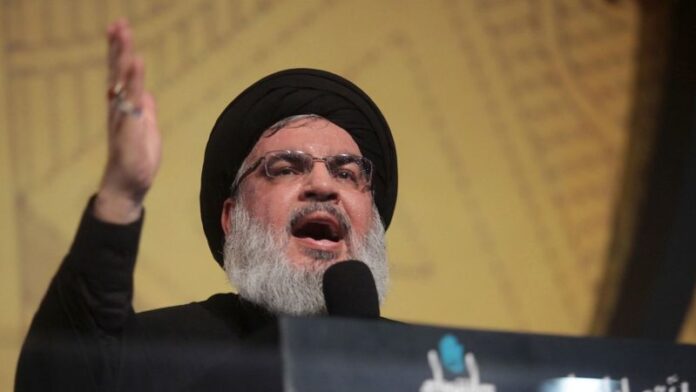(CNN) – Hassan Nasrallah, whom Israel believes it killed in an attack south of Beirut, turned Hezbollah into one of the most powerful paramilitary forces in the Middle East. His death caps a series of devastating blows for the group, already reeling from the humiliation of having its communications network infiltrated, and suggests that one of Israel’s most formidable enemies is deeply wounded.
Nasrallah, one of the founding members of the group formed four decades ago with the help of Iran, rose to the top of Hezbollah in 1992. He replaced his predecessor and mentor, Abbas Musawi, as secretary general of Hezbollah, after he was killed by an Israeli helicopter attack.
Born in Beirut in August 1960, the son of a shopkeeper and his wife, Nasrallah spent his adolescence in the shadow of the Lebanese civil war.
His family was forced to flee the capital when fighting broke out in 1975 and moved south to a town near the coastal city of Tyre.
A year later, Nasrallah moved to Iraq to attend a Shiite seminary. But he was quickly expelled during the persecution of Shiite Muslims under Iraqi President Saddam Hussein’s repressive regime, and returned to Lebanon to study with his teacher, Musawi.
When Israel invaded Lebanon in 1982, Nasrallah gathered a group of fighters to resist the occupation, a group that would become Hezbollah.
That year, Israeli forces seized nearly half of Lebanese territory and were held responsible for the deaths of at least 17,000 people, according to reports and an Israeli investigation into a massacre at a Beirut refugee camp.
Known for his fiery speeches, the leader oversaw the transformation of Hezbollah from a group of ragtag militants in the 1980s to an organization that mounted a concerted campaign to expel the Israeli occupation in 2000.
Under Nasrallah, the Lebanese militant group became a regional fighting force. He directed the growth of Hezbollah’s forces — its fighters and reservists are believed to number 100,000 — as well as the proliferation of its arsenal, which features long-, medium- and short-range missiles and drones.
Nasrallah has hundreds of thousands of followers, mostly Shiite Muslims, in Lebanon, Iraq, Syria and Yemen. His influence in the so-called Iran-backed resistance axis grew exponentially after the United States killed top Iranian general Qassem Soleimani, architect of the regional axis, in 2020.
Hezbollah is the most heavily armed non-state group in the region and the most dominant political force in crisis-ridden Lebanon. Much of the Western world has designated Hezbollah as a terrorist organization.
The Lebanese militant group has increasingly traded attacks with Israel since it launched its assault on Gaza following the Hamas-led October 7 attacks, exacerbating tensions in the region.
Hezbollah claims it has been firing at Israel in solidarity with Hamas and with Palestinians trying to survive Israeli attacks on Gaza, which have killed more than 41,000 people, according to the area’s Health Ministry.
Days before his death, Nasrallah vowed to continue attacking Israeli positions until Israel’s offensive in Gaza ends. “I say it clearly: no matter the sacrifices, the consequences or the future possibilities, the resistance in Lebanon will not stop supporting Gaza,” he said in a speech on September 19.
Fears of all-out war reached a fever pitch this month after Israel unleashed a wave of deadly explosions across Lebanon targeting Hezbollah fighters. Many of the dead were civilian bystanders.
Since then, Israeli attacks have forced hundreds of thousands of Lebanese from their homes. In total, since October 7, more than 1,500 civilians have been killed in Lebanon and more than 200,000 people have been displaced, according to the UN Office for the Coordination of Humanitarian Affairs. Lebanese authorities estimate that the real number of displaced people is close to half a million.
Human rights advocates have strongly condemned the violence, including UN Secretary-General António Guterres, who warned that Lebanon is suffering its bloodiest period “in a generation” and called on Israel and Hezbollah to “end the bloodshed.” and destruction.”

